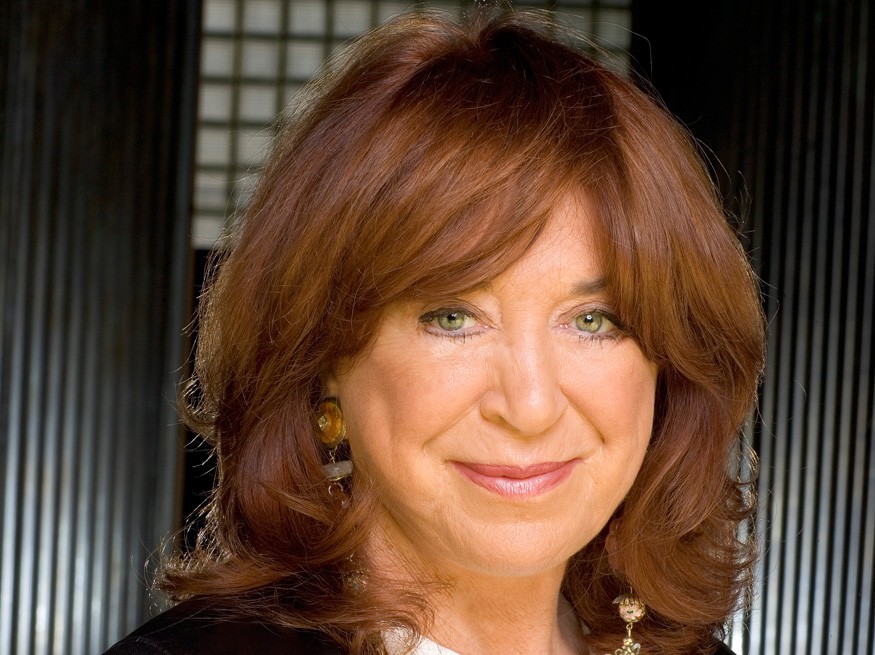
What do you think crime fiction lovers will love about Good Friday?
In Good Friday, the third book in the Tennison series, crime fiction lovers will be able to continue watching Jane Tennison grow in experience and rank. Although the story includes some of the IRA bombing that was happening at that time in England, the main thrust of the book comes from Jane’s experience with the Dip Squad. She also starts to learn about forensics; at that time there was still no such thing as DNA, or a Holmes Database. I think readers will find it intriguing to see how crimes were solved then, without the aid of the modern technology that we now all take so much for granted.
I wanted to explore the young Jane Tennison because the original TV series made such an impact, with Helen Mirren’s portrayal of the character. A question from one of my readers at a book event inspired me to look back at how Jane Tennison became such a tough woman in a very male dominated career, and how she managed to achieve the rank of DCI. It has been fascinating for me to look back at her past.
What was your process for doing this? How did you get back into Prime Suspect mode and what did you want to crystallise about Tennison by looking at her as a 20-something rookie in the 1970s?
In 1972 there were very few female detectives and the discrimination against them was rife. Jane’s parents were dubious about her even joining the police force, but we can see Jane’s character continually taking shape. However, there’s still a very long way to go before she becomes a DCI.
Good Friday’s plot is driven by an IRA bombing campaign. What inspired you to use terrorism as the basis of the story?
I felt that it was important to include IRA bombing in the story because in London in the 1970s it was very much at the forefront of the news. To have avoided such a significant topic would have been unauthentic.
I chose not to continue being involved in the ITV series of Prime Suspect 1973 because I did not approve of the casting or the script, which was only very loosely based on my original book of Tennison.
You’ve written plenty of great novels, and great TV shows. For you what are the main differences between writing for the page and screen in the crime genre?
There is a big difference between writing a novel and writing a script. It’s always crucial to have a very strong plot line in both, but in a novel you can use descriptions of characters and locations without any concern about cost. For example, you can have a chapter that talks about six patrol cars and 18 police officers, but in a script and on screen it’s likely that, due to budget restrictions, this would be reduced to two cars and four officers! Scripts tend to have a good pace which is driven by the dialogue for the actors, and can become quite stylised in comparison to the novel. I enjoy writing both, and if a script is based on a book that I have already written it is obviously much easier for me as I know the plot inside out, and have a clear understanding of what I can cut and adapt for the screen.
Prime Suspect won an Edgar Award while you worked on it. It’s in our top 20 crime shows of all time. What influence do you think it’s had on crime fiction, either on screen, in books or both?
Prime Suspect became such an iconic series because, for the first time, it featured a high ranking female police officer working in a murder squad. Jane Tennison was already in her 40s in the original TV series, and was therefore mature enough and sufficiently experienced to handle the discrimination that she faced at every level. Added to the strong story line was the introduction of DNA for the first time. Helen Mirren’s brilliant portrayal of the character was a major contributory factor to its success. Although Helen had not appeared on TV before, she was a highly respected theatre actress and had a stillness and intelligence that shone through. I truly believe that the original TV series of Prime Suspect opened the doors for casting women in major leading roles as plain clothed police officers.
And what are some of your influences when it comes to crime fiction? Who are your favourite crime authors and what are you reading right now?
Two of my favourite crime writers are Patricia Cornwell and Michael Connelly, whose latest novel The Late Show I’m currently reading. However, the author I most enjoy and admire is Raymond Chandler. He has an incredible ability to describe a character in two lines, his humour leaps off the page and his plots are always brilliant. He also comes up with the best titles for his books.
What’s next for Lynda La Plante?
I have a lot of very exciting projects in the pipeline at the moment. Apart from more books to come in the Tennison series, I’ve started work on a completely new character which I hope will be the beginning of another thrilling book series. My novel, Cold Shoulder, is being made into a film in France, and there will also be a US TV series based on the character of Lorraine Page. Some years ago I wrote an Australian film based on the true life of the last woman to hang in Australia, and after a few failed attempts to get this into production it now looks likely that it’s going to happen!
